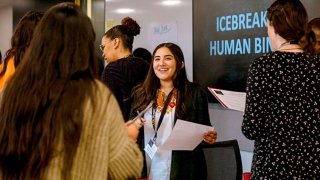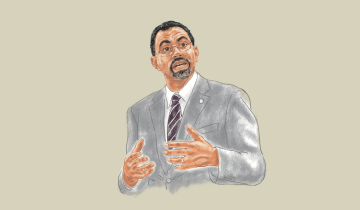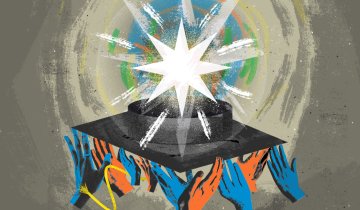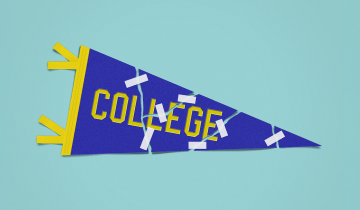Students, prospective students and professors are in a circle winding around the wall of a large classroom on the USC campus.
Everyone can see everyone; this is an opportunity for openness, and Angelica, a prospective PhD student and a Latina, is baring her soul.
She tells the story of introducing herself to a White man on her campus, who pronounced her name with a soft g.
“It’s An-hel-ee-ca,” she recalled saying.
The man responded: “I’ll try to learn that, but … I’m just going to call you Angie.”
Angelica’s anecdote is one of many given out today representing how students of color are frequently marginalized—in little ways and big—on college and university campuses.
And that common experience is why more than three-dozen students have come to USC Rossier on this Saturday, to hear each other, to find inspiration, to gain knowledge and to build a community.
The organizers of this event—formally, the PhD Preparation Summit—expected these kinds of stories. Aireale Rodgers and Ashley Stewart, both Black women enrolled in the PhD in Urban Education program at USC Rossier, say that applying to any PhD program can be filled with unexpected landmines, especially for scholars of color.
“We know the many hoops that folks of color have to jump through in the graduate admissions process,” Rodgers said. “And we know these systems were never created with us in mind. There is a hidden curriculum that routinely disadvantages and demoralizes folks of color.”
Underrepresented
According to the National Center for Education Statistics, the education field produces more doctoral graduates than any other except health and law. Yet NCES data also show that students of color make up less than a third of graduates, and faculty of color are even more underrepresented among faculty ranks.
That disparity is about more than just pure numbers—it also reflects how hard it can be for students of color to find mentorship from faculty of color both in understanding the application process and after joining the academy.
Last spring, Stewart started a spreadsheet tracking pipeline programs that help bridge undergraduate and graduate degree programs for historically marginalized groups.
“I realized that many of these programs weren’t being advertised well,” Stewart said. “Websites were inaccessible and many students were likely graduating without knowledge that these programs even existed.”
Stewart found Rodgers, who was mulling how master’s students could be better prepared to apply to doctoral programs. Together they decided to create a new space, where students of color could get resources to navigate the “hidden curriculum” of the graduate admissions process, but also be reminded of their inherent worth and wholeness.
A new road to mentorship
The problems that disproportionately hit students of color are well documented: Lack of guidance or encouragement on applying to graduate-degree programs; lack of help navigating the GRE; lack of access to financial aid, or even knowledge about what kinds of grants and funding are available.
The summit is designed to fill those needs. Rodgers and Stewart recruited faculty of color and fellow PhD students to share personal experiences of navigating doctoral programs and to serve as role models of success in the academy.
Attendees hear about the differences between various kinds of doctoral programs, and do focused table discussions on subjects ranging from approaching the GRE to maintaining work/life balance. The organizers also invited Daisy Camacho-Thompson, an assistant professor in psychology at California State University Los Angeles, to moderate the in-the-round discussion where Angelica and others shared their stories.
Rodgers and Stewart want this effort to continue every year, and to be, in Rodgers’ words, “a sustainable mechanism for community building, critical engagement and enacted commitment to justice in graduate education.” They created a website for collecting resources; they’re surveying attendees to improve how the program can run in future years; and they’re following up with each attendee throughout their respective application processes. In addition, they also secured a promise from the USC Graduate School to waive the application fee for summit attendees.
And there’s no doubt that the connections fostered here will be one of the biggest successes. At lunch and between sessions, attendees approach faculty for advice and support, exchanging information in order to stay in touch. There’s a promise of mentorship, a sense of community permeating the room.
The summit doesn’t mean finding or fitting into a PhD program will be easy, but attendees are leaving with new supports that will hopefully make the path easier.
Camacho-Thompson puts it best.
“You will learn how to be your true self,” she said. “You will figure it out.”




